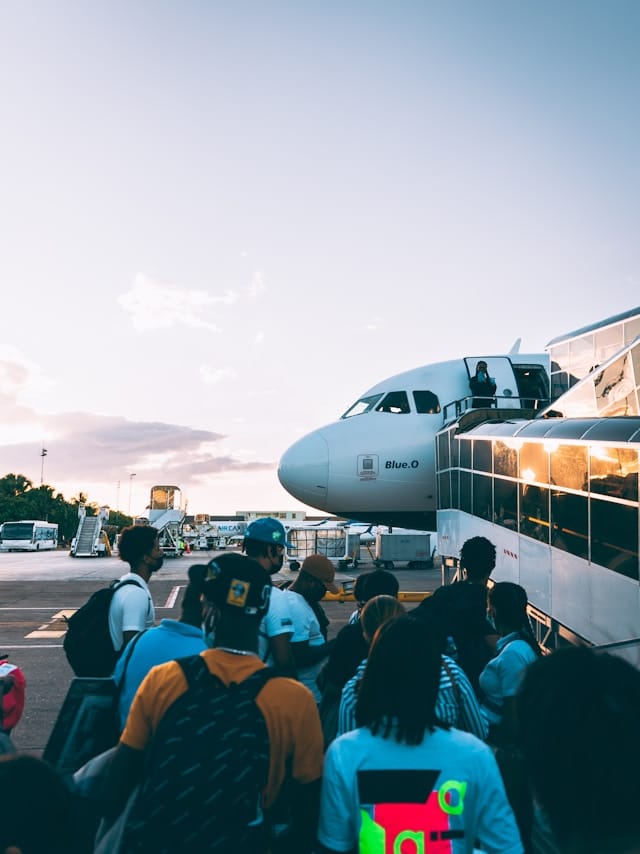How Is Technology Shaping Customized Travel Experiences?

The 21st century has seen the convergence of travel and technology, giving rise to a new industry: digital tourism. This combination of technology, travel, and tourism is revolutionizing the way people experience their journeys, from the planning stages to the actual trip itself. This article explores how technology is shaping customized travel experiences.
The Intersection of Mobile Technology and Travel Industry
Mobile technology has indubitably changed the way we live, and the travel industry is no exception. Today, your smartphone can serve as your travel guide, booking agent, map, and much more. Companies have taken advantage of this mobile revolution to provide travelers with a more personalized and enhanced experience.
Lire également : What Are the Best Water-Saving Gadgets for UK Households?
Today, travelers no longer rely solely on travel agents for booking hotels or flights. Instead, they can simply pull out their smartphones and access numerous online platforms that offer these services. From the initial stage of researching potential destinations to comparing hotel prices, reading reviews, and finally booking, mobile technology has streamlined the entire process.
These platforms are also using data to provide a more personalized experience to their customers. They analyze user behavior and preferences to provide tailored recommendations. For instance, if a user regularly books beachfront hotels, these platforms will recommend similar properties in other destinations. This increases customer satisfaction and loyalty, as customers feel understood and catered to by these businesses.
A lire en complément : How to Reduce Food Waste with Smart Kitchen Tech?
Moreover, digital check-ins and mobile room keys are becoming more commonplace in hotels. These technologies not only add to the convenience of the hotel experience but also provide a safer, contactless method of checking in and accessing rooms, which is particularly essential in the current health climate.
The Role of Augmented Reality and Virtual Reality in Tourism
Augmented Reality (AR) and Virtual Reality (VR) are two emerging technologies that are leaving a significant impact on the travel and tourism industry. These technologies offer travelers a new way to experience and interact with their surroundings.
For instance, AR can enhance tourists’ experience by overlaying digital information on real-world objects. By pointing their smartphone at a historical monument, travelers can receive information about its history, architectural style, and significance. This not only offers a more immersive experience but also eliminates the need for a physical guide.
On the other hand, VR allows potential travelers to explore destinations before they even book their tickets. Hotels and travel agencies are using VR to offer virtual tours of their rooms and local attractions. This allows customers to get a taste of what to expect, increasing their confidence in their booking decision.
These technologies are also being used in the hospitality training industry. Hotel staff can experience and learn from real-life scenarios without the risk of making a costly mistake. This leads to better-prepared staff and ultimately a better experience for the guests.
Artificial Intelligence: The Digital Concierge
Artificial Intelligence (AI) is another technology that’s reshaping the travel and tourism industry. It’s playing a crucial role in improving customer service and creating personalized experiences for travelers.
Many hotels are integrating chatbots into their websites and mobile apps. These AI-powered assistants can answer customer queries, provide recommendations, and even facilitate bookings round the clock. As these bots learn from customer interactions, their responses become more personalized and accurate, offering a superior customer experience.
AI is also enabling predictive personalization in the travel industry. Based on previous behavior and preferences, AI can predict what customers will want or need during their trip. For instance, if a customer regularly orders a particular dish from the hotel’s menu, the system can suggest the same or a similar dish the next time the customer visits the restaurant. This level of personalization enhances the customer’s experience and makes their stay memorable.
Big Data and Analytics: Understanding Travel Trends
Big Data and analytics play a pivotal role in understanding and predicting travel trends. By analyzing large volumes of data, businesses in the travel industry can gain insights into customer behavior, preferences, and patterns. This data can be leveraged to enhance the customer experience, streamline operations, and improve business strategies.
For instance, analyzing booking data can reveal peak travel times, allowing hotels to adjust their pricing strategies accordingly. Similarly, flight data can be analyzed to optimize routes and reduce fuel consumption.
Customer reviews and social media posts can be analyzed to understand customer sentiment and feedback. This information can guide businesses in improving their services and addressing customer concerns. For instance, if a hotel receives negative reviews about its breakfast spread, it can use this feedback to improve its menu.
Understanding travel trends can also help businesses forecast demand and manage their inventory effectively. For instance, if data analysis reveals a surge in bookings for a particular destination during a certain season, hotels and airlines can plan their services accordingly.
The Future of Travel: A Digital Transformation
The future of travel lies in digitization. Technology is paving the way for a more personalized, immersive, and convenient travel experience. As advances in technology continue, we can expect even more innovations that will continue to revolutionize the travel and tourism industry.
From AI-powered concierges to AR and VR-enhanced tours, technology is elevating the travel experience to new heights. Mobile technology is making travel more convenient and accessible, while data and analytics are helping businesses understand and cater to customer needs better.
As customers, it’s exciting to think about the future of travel. With technology at our fingertips, the world is truly becoming our oyster. We can explore new destinations, immerse ourselves in new experiences, and create memories that will last a lifetime, all thanks to the power of technology.
The Internet of Things (IoT): Tech-Savvy Travel
The ever-growing Internet of Things is significantly influencing the travel tourism industry, shaping how tourists experience their trips. IoT refers to the network of physical devices connected to the internet, collecting and sharing data. This technology enables greater automation and connectivity, ultimately enhancing the overall travel experience.
For instance, in the hospitality sector, hotels are implementing IoT to create smart rooms. These are rooms in which devices are interconnected, allowing guests to customize their environment to their liking. With their mobile devices, guests can control the room temperature, lighting, and even the television. These features provide a new level of convenience and comfort for travelers.
In airports, IoT technology is being used to improve the passenger experience. Sensors and smart devices provide real-time updates on flight delays or changes and can guide passengers through the terminal to their gate. This eases the stress of navigating a busy airport, especially for first-time flyers.
Moreover, IoT is helping to enhance the safety and security in travel. Luggage manufacturers are incorporating GPS tracking into their suitcases, allowing travelers to keep track of their bags at all times. This reduces the risk of lost luggage which is a significant pain point in the travel experience.
Social Media: A Catalyst for The Travel Industry
Social media has not only changed the way we communicate but also how we travel. It has become an integral part of the travel experience, impacting how destinations are chosen, how experiences are shared, and how companies interact with their customers.
Travelers are increasingly turning to social media platforms to draw inspiration for their next trip. Beautifully captured photos and videos of destinations can spark a desire to visit those places. Travel companies are leveraging this trend by creating visually compelling content that showcases the beauty and uniqueness of various destinations.
Furthermore, social media provides a platform for travelers to share their experiences in real-time. This user-generated content acts as a form of word-of-mouth marketing for travel destinations and businesses. Positive experiences shared online can influence others to visit the same place or use the same company for their travel needs.
Travel companies are also using social media to improve their customer service. They are able to respond to customer inquiries and complaints in real-time, enhancing the overall customer experience. This interactive communication builds trust and loyalty with customers, which is crucial in the competitive travel industry.
Conclusion: Embracing a Digital Transformation in the Travel Industry
As the world becomes more interconnected and digitized, the travel and tourism industry must keep pace with the sweeping wave of digital transformation. The combination of mobile technology, augmented reality, artificial intelligence, big data, the Internet of Things, and social media is revolutionizing travel tourism, offering a more personalized and immersive experience to tourists.
The implications of these technologies expand far beyond mere convenience. They enable businesses to understand their customers on a deeper level, anticipate their needs, and offer tailored services. This leads to increased customer satisfaction and loyalty, ensuring the continued growth and success of the travel industry.
Moreover, technology is breaking down barriers in travel, making it more accessible to a larger audience. From virtual tours of distant locations to real-time language translation, technology is making the world a smaller place.
As we look to the future, it’s exciting to envision the new advancements and innovations that will further shape our travel experiences. There is no doubt that technology will continue to transform the travel industry in ways we can only imagine. Even as we marvel at how much has changed, we can be sure that this is just the beginning of our journey into the future of travel.
